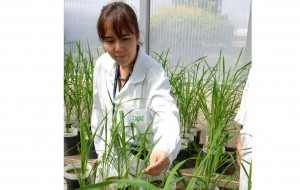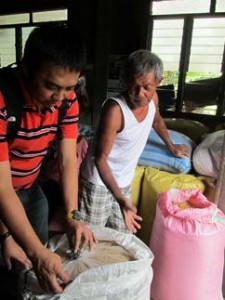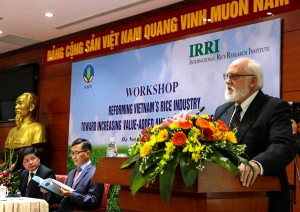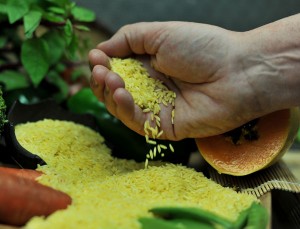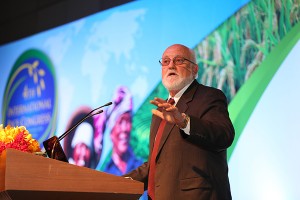
A new breed of agricultural extension and development officers recently completed a 5-month capacity-building course called “Enabling the AgRiDOC: a new breed of rice extensionists” and are now ready to serve rice-based farming communities in the country.
The Department of Agriculture (DA), through the Philippine Rice Research Institute (PhilRice) and the Agricultural Training Institute (ATI), together with the International Rice Research Institute (IRRI), implemented these efforts under the project, Improving Technology Promotion and Delivery through Capability Enhancement of Next-Gen Rice Extension Professionals and Other Intermediaries (IPaD).
The 25 new AgRiDOCs, or agricultural development officers of the community, were formally recognized in ceremonies held at PhilRice in Muñoz, Nueva Ecija, on 17 April 2015.
Karen Barroga, project leader and chief science research specialist at PhilRice, explained that an AgRiDOC has a “broader and more active role in the development process, a renewed capacity and attitude in performing their usual roles, and a new set of knowledge and skills to deal with current and future challenges in agriculture.” The training course is one of the steps being taken to help strengthen the rice extension system.
“When the AgRiDOCs return to their offices and communities, we expect them to initiate projects that will make rice farming communities competitive, sustainable, and resilient,” said Dr. Barroga. “That is why we have extended their knowledge and skills from a narrow focus on rice to a broader take on rice-based farming systems and added agricultural entrepreneurship and social values.”
Julian Lapitan, interim head of IRRI’s Partnerships Office and lead of the IPaD project at IRRI , encouraged the pilot batch of AgRiDOCs to become agents of change. Lapitan challenged each graduate to “be an environment-changer and transform lives in farming communities.”
In his message to the AgRiDOCs, Director Asterio Saliot of the Agricultural Training Institute said, “Your integrity lies in walking your talk, and with the right attitude, you will be successful.”
To transform farm communities, Saliot and Lapitan said that change should start from them.
The training program, which started on 19 November 2014 with a focus on Luzon-based extensionists, was conducted at the Central Experiment Station of PhilRice in Nueva Ecija. A second batch of trainees, this time from Visayas and Mindanao, will start their training in June 2015.
Regular course offerings are expected to start in 2016.
The IPaD project is funded by the National Rice Program of the DA through the Bureau of Agricultural Research.

